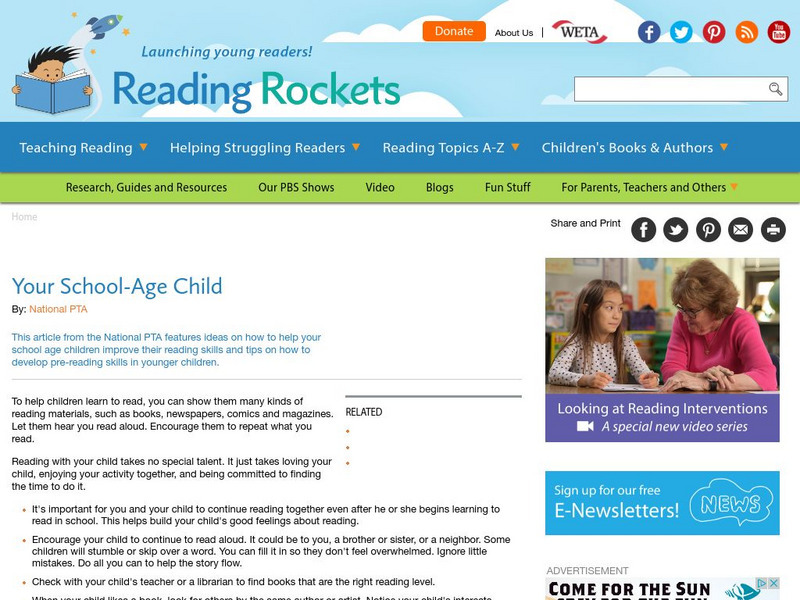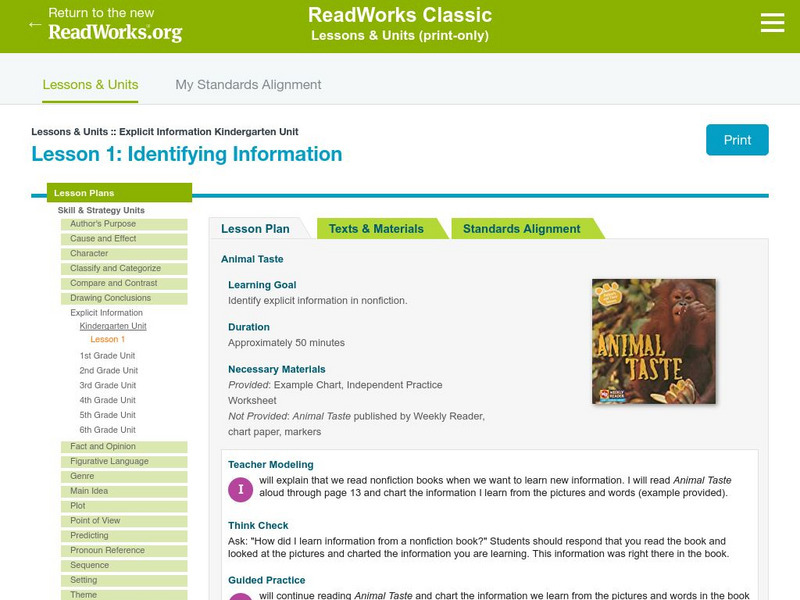Better Lesson
Better Lesson: Day 1 Rude Giants
Students will use illustrations and details in a story to describe its characters, setting, and events by working with partners to ask and answer questions about the text.
Unite for Literacy
Unite for Literacy: Community: I Am a Scientist
This book shows some of the many different types of scientists. Includes audio narration in 6 additional languages with text in English.
Texas Education Agency
Texas Gateway: Asking and Answering Questions Professional Development
Asking and Answering Questions Professional Development provides strategies to teach students how to ask and answer questions more effectively to improve comprehension in the classroom and on standardized assessments. It containing 9...
Better Lesson
Better Lesson: Asking and Answering Questions About Our Story
A lesson plan with all resources included for asking and answering questions to strengthen comprehension.
Better Lesson
Better Lesson: Miss Nelson Is Missing Key Details
Where did Miss Nelson go? We look at the key details in the text to determine what is happening throughout the story. Students will locate and record key details about story elements (characters, setting, problem, solution, and theme) in...
Better Lesson
Better Lesson: Question: Do You Know Your Question Words?
Once students realize they are able to gain more information and expand their learning by asking questions, they love to use their question words. In the end, the more students ask, the more they will have to answer; therefore, the more...
Read Works
Read Works: Read Aloud Lesson: Whoever You Are
In this read-aloud activity, students will identify similarities among people around the world in order to determine the theme of the story. Included is a detailed lesson plan, graphic organizer for guided practice, and an independent...
CPALMS
Cpalms: Understanding Key Details by Using Pancakes for Breakfast
[Free Registration/Login Required] For this lesson, students will be read Pancakes for Breakfast by Tomie DePaola in order to understand and describe people, places, things and events in a text. They will create a book by drawing or...
Better Lesson
Better Lesson: Guess My Solid
Descriptive details are used as learners develop a guessing game poster for others to try and guess their chosen solid. Included in this detailed lesson plan are videos, samples of student work, a printable worksheet, an assessment...
Education.com
Education.com: Asking Questions and Finding Answers
[Free Registration/Login Required] Pretending to be someone else is so much fun! In this hilarious lesson, learners will get to take on the persona of a book character as they practice their question and answer skills. At the conclusion...
Better Lesson
Better Lesson: The Power of Questions
Learners will have the opportunity to work collaboratively by using the Think-Pair-Share technique to ask questions about a story. Included are examples of student's questions, and a Think-Pair-Share poster and document.
CPALMS
Cpalms: Giraffes and Zebras Oh My!
[Free Registration/Login Required] For this lesson plan, students will be able to ask and answer questions about key details in a text. Additionally, students will also be able to identify, compare, and contrast characteristics between...
Better Lesson
Better Lesson: With Prompting and Support, Ask and Answer Questions
Choose from a variety of lessons that meet the Common Core standard of asking and answering questions about unknown words in nonfiction texts.
Writing Fix
Writing Fix: The Wacky "I Will Not" Chalkboard
Students can use this writing idea from the book Wacky We-Search Reports by Barry Lane to demonstrate understanding in any content area. Students use the idea of writing "I will not " sentences to show their knowledge of various...
Curated OER
Mc Graw Hill: Part 1: Reading Literature: Use Illustrations and Details
Learn how drawing characters, settings, and events can help with reading comprehension.
Family Education
Family Education: Fifteen Minute Reading Activities
What can you do with your child in fifteen minutes to improve their reading skills? This site has a list of reading activities.
Florida Center for Reading Research
Florida Center for Reading Research: Expository Fact Strip [Pdf]
A lesson plan in which students read a text and identify the topic and four facts presented within the text. Materials are included.
Reading Rockets
Reading Rockets: Your School Age Child
What can you do to help your school-age child develop their reading skills?
Read Works
Read Works: How to Draw a Map Passage & Question Set
[Free Registration/Login Required] This informational text passage explains how to draw a map. This passage reinforces essential reading comprehension skills. Opportunities for vocabulary acquisition are also included. Several questions...
Read Works
Read Works: So Many Kinds of Food!
[Free Registration/Login Required] A literary text about a little girl named Lisa who likes to eat many different kinds of foods. A question sheet is available to help students build skills in reading comprehension.
Read Works
Read Works: Explicit Information 1st Grade Unit
[Free Registration/Login Required] A two-lesson unit in which students learn how to identify explicit information in both fiction and non-fiction texts. The lessons utilize the books Frogs by Gail Gibbons and Stellaluna by Janell Cannon....
Read Works
Read Works: Explicit Information Kindergarten Unit: Identifying Information
[Free Registration/Login Required] Use Animal Taste by Kirsten Hall to teach students to find explicit information inside informational texts. Includes ideas for teaching, guided practice, and independent practice. Although the book is...
Other
Into the Book: Questioning
Learn the significance of questioning in the classroom to teach students how to question the text in order to better understand what they are reading.
ReadWriteThink
Read Write Think: Reading Informational Texts Using the 3 2 1 Strategy
Students can count on using the 3-2-1 strategy to help them successfully comprehend and write about an informational text.








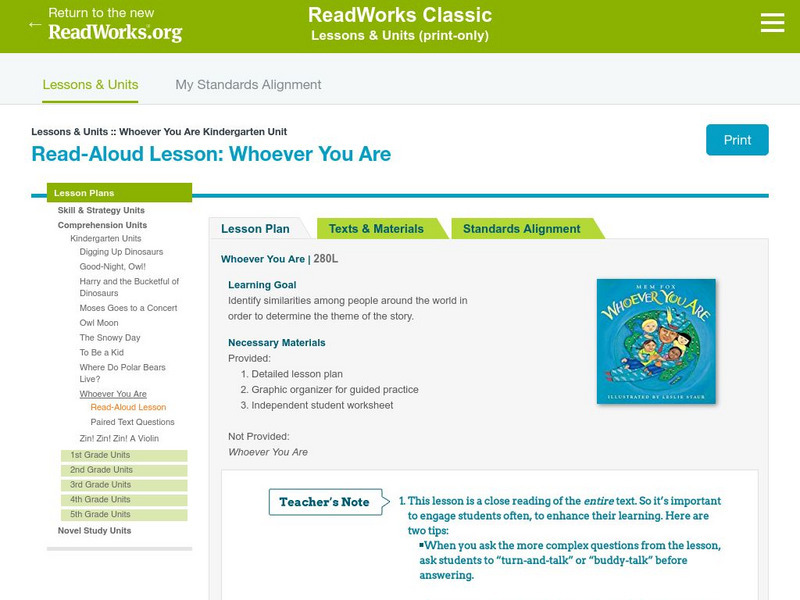
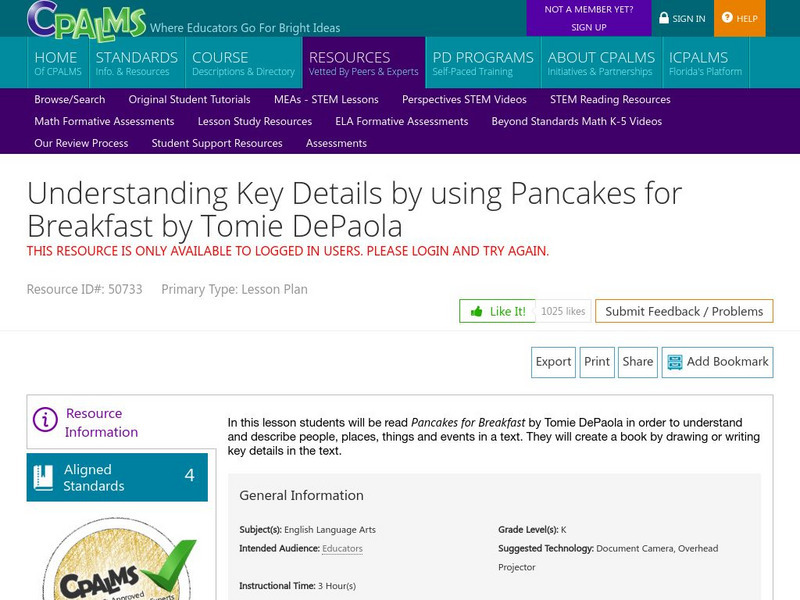






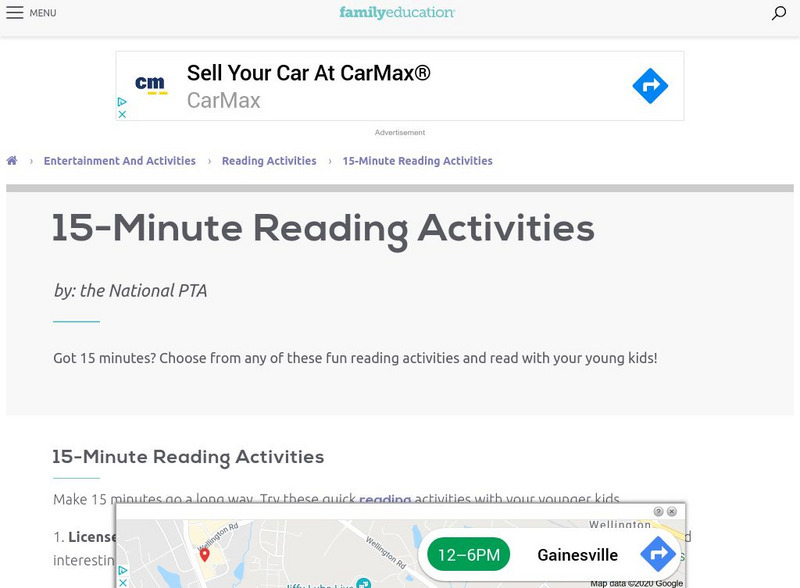
![Florida Center for Reading Research: Expository Fact Strip [Pdf] Lesson Plan Florida Center for Reading Research: Expository Fact Strip [Pdf] Lesson Plan](https://content.lessonplanet.com/knovation/original/101726-6e9433c83ac2e2bbad9c1c7411098251.jpg?1661786954)
